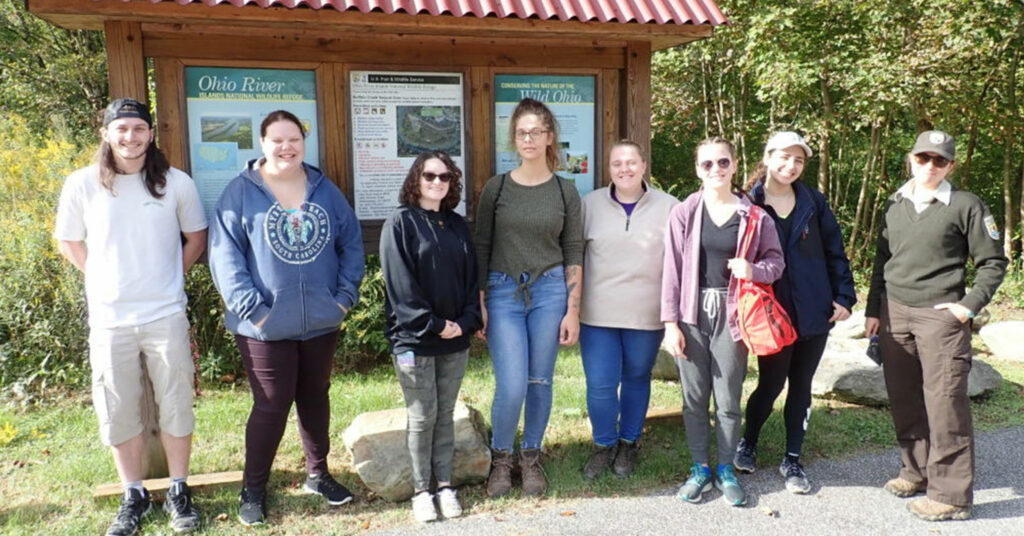(Above, from left): Students Zach Kaminiski, Ashley Bibey, Page Adams, Michelle Chenoweth, Montana Fonner, Emma Cooper, Danni Vieira and Elaine Barr of the U.S. Fish and Wildlife Services.
West Liberty University ecology students have been serving the community, improving the environment, and completing course assignments—all at the same time this fall. From rain barrel creation to habitat management, these students impacted the community in a big way.
“Community service projects give students a chance to interact with professionals and make connections with topics discussed in the classroom. The projects also help improve the local environment and give students hands-on experience dealing with real world environmental issues,” said Dr. James Wood, WLU’s assistant professor of ecology.
In early October, students in Dr. Wood’s Fundamentals of Ecology & Biodiversity course worked with the U.S. Fish and Wildlife Service (USFS) to remove invasive species and pick up litter at two different locations: the Buffalo Creek Wildlife refuge and the Wheeling Island Wildlife Refuge.
“Helping with the invasive species removal was a very rewarding experience knowing I was able to help the environment and leave with more knowledge than I went in with,” said student Zack Kaminski, a Zoo Science major.
“At Wheeling Island, the students also helped plant native trees to help restore wildlife habitat lost due to the proliferation of invasive exotic plants,” said Wood. “I’m proud of our students and thrilled that the university is able have such a positive impact in the community.”
A student service project in late October included working with the City of Wheeling’s stormwater coordinator Joe Smith, to build rain barrels from 55-gallon plastic drums.
“It was a great opportunity to engage with students on environmental issues that are important to them and the local community,” said Smith.
Rainwater runoff from parking lots and roofs is a major source of pollution in creeks because it carries oils, toxic chemicals and other pollutants—and installing rain barrels on downspouts helps reduce this runoff.
“The rain barrels project taught me why people have rain barrels and what their purpose is” said student Gavin Grimm, also a Zoo Science major.
The barrels were painted by students as a senior capstone project, through a partnership with the WLU Art Department. The attractive barrels were then donated to the Wheeling Water and Pollution Control Division and Oglebay Institute’s Schrader Environmental Education Center to raise awareness of water quality issues in the region.
Wood believes that “connecting art and science is important because it helps us all understand and make personal connections to the environmental issues that affect our lives.”
Funding for supplies for the project was partly provided by 3RiversQuest, a non-profit organization operating out of WVU.
